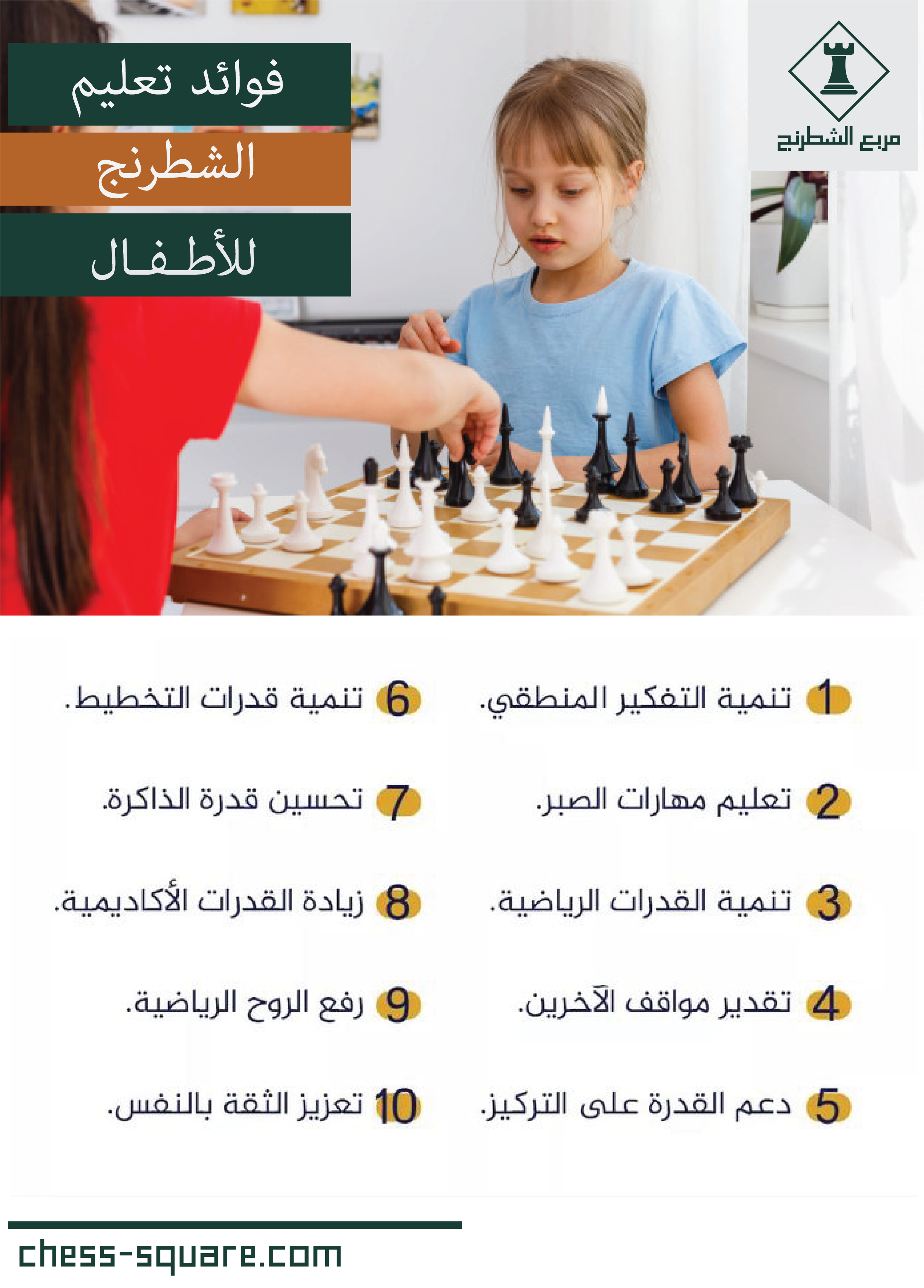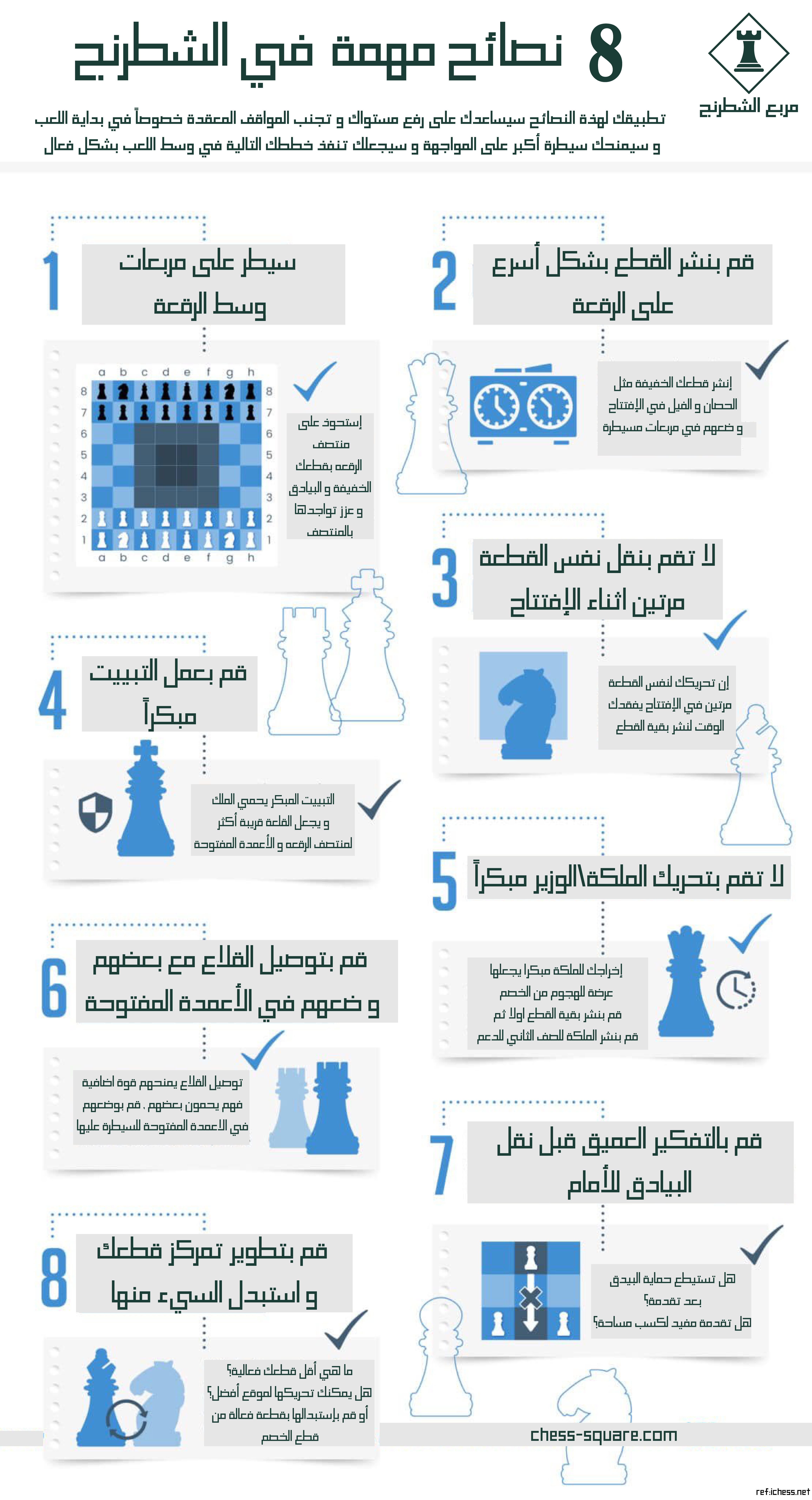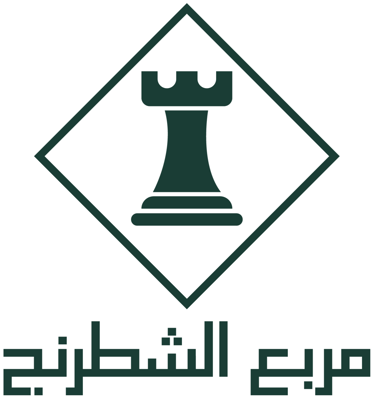learn chess
You can order the product and start learning immediately via YouTube or communicate directly with our specialized trainers for free for the first two hours or request paid training from one of our trainers.
(1) How to Play Chess: The Complete Guide for Beginners - YouTube
Explanation in English
Explanation in Arabic
Here, through this link, you will learn the basics of chess in a beautiful, useful, and fast interactive way:
Learn chess - by playing! •lichess.org
Benefits of chess:

Benefits of playing chess Chess has a number of benefits for adults and children, the most important of which are:
· Strengthening social relations: Chess has brought people together through matches and competitions since its inception, about 1,500 years ago, bringing together people of different ages, cultures, and backgrounds during its periods of development and spread around the world.
· Learning new strategies for winning: By practicing chess, people learn to accept losing despite their desire to win. A chess player can also learn from losing and benefit from it by avoiding the paths that lead to it, thus becoming more able to face failure and be wise.
· The ability to perceive actions: By children practicing chess and thinking about the moves they will make, and trying to choose the best moves to win, children will realize over time that thinking about their choices is very important, as the results, whether good or bad, depend on the way they think, and rushing in general may lead to bad consequences.
· Strengthening concentration: Chess helps develop the skill of concentration, as it requires great concentration in every step a person takes.
· Teaching many skills: Chess is a low-cost game, suitable for teaching many skills to all ages that may come together at school or in a chess club, and it is also suitable for people with special needs.
· Developing creativity: All characters can play chess in their own personal way, as it contributes to showing creativity through the plans, strategies and moves they make.
· Enhancing self-confidence: It helps develop a person’s self-confidence by competing with others, trying to analyze the reasons for losing and winning, and finding his strengths and weaknesses. Playing chess at different times also increases a person’s calmness and increases his ability to adapt to the surrounding circumstances.
· Developing some skills: Chess requires the ability to confront and solve problems and think properly in order to win. Winning requires avoiding hasty decision-making. Continuous practice of this game will also give the person different skills to apply in daily life.
· Activating and enhancing the brain: Playing chess is a suitable exercise for the brain, as it helps maintain brain health, develop the ability to recognize patterns, and make decisions related to the visual and analytical sides by training both sides of the brain.
· Staying calm and facing pressure: Winning at chess requires concentration and maintaining calm at the same time. No matter how much pressure the competitor is exposed to, he must maintain his calm to ensure making sound decisions, which leads to applying this in daily life to face various pressures.
Successful learning strategy:
1/ Learn the basics and rules of chess.
2/ Learn openings, spread pieces and castling
3/ Learn the midfield calculations and necessary tactics.
4/ Learn endings and their strategies
5/ Solve puzzles periodically.
6/ Follow and analyze matches of ranked players around the world.
8 important tips to improve your chess level:

And through our book 101 Chess Tips
You will be able to raise your level significantly.
101 Tips from Chess Experts - Chess Square (chess-square.com)

